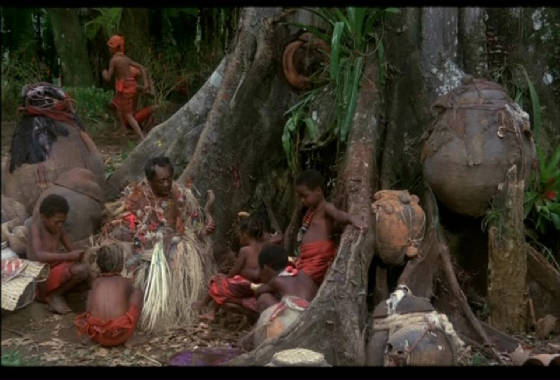|

Quilombo the film tells the true story of escaped black slaves who found their own commune as free men in 17th century Brazil.
The film can be seen in the context of the brutal dictatorship that ruled Brazil until 1985, just one year after the film
was made: the obvious commentary on the regime, and the danger of open criticism probably discouraged realism as a narrative
approach in a film that tells the story of violent and brutal masters, and those enslaved by them who escape to freedom.
But today what seems more important is Quilombo's attempt to create a history of Brazil that starts with the African experience,
and in particular the experience of those Africans that fought to live outside the European model that had brought them there.
Part of the film is about creating a history of the movement of African culture to the Americas.
The institution of slavery, which lasted longer in Brazil than most colonies, created myths of inferiority that are too
familiar, and still lead too often to assumptions about black culture.
The music is by Gilberto Gil, one of Brazil's greatest pop musicians, and a major force in the defining of afro-brazilian
identity in Brazil since the sixties, not to mention Brazil Minister of Culture as of this writing. The music itself is great
samba that makes no attempt to recreate the music of the period.
The connection to the dignity of the first independent Africans in the Americas is vital in the film. Quilombo is a denial
of and an affirmation of history, and perhaps part of what might is greatly needed to awaken the global denial of slavery
as alive and well today.
|

